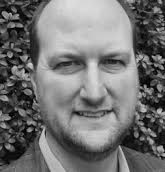What comes to mind when you hear the word fulfill? Phrases like “to achieve,” “to carry out,” “to realize,” or “to put into effect” stand out, right? I always think about living out a dream, or finally achieving a goal that I’ve set for myself.
The type of fulfillment I want to talk about today is financial fulfillment. Why? Because this, in essence, is when you are able to live your best financial life. And I’m here to tell you how you can achieve this too.
What Exactly is Financial Fulfillment?
Financial fulfillment happens when we are entirely in control of our finances, using them to achieve what we want in life. It’s a state of mind that comes from financial success and at the same time, requires us to live up to our financial responsibilities.
It’s when we move from making decisions based on our finances to wielding our finances to make the best life decisions for us. Sounds great, right? But how do we know when that is? You’ll know when you’ve achieved it because that’s when you see the decisions you make today leading you to exactly where you want to be tomorrow.
The Steps to Achieve Financial Fulfillment
To achieve this “best financial life,” you must have clarity in today’s situations, so you have control of where you’re going tomorrow. This, in turn, allows you to act intentionally throughout your financial life. So, without further ado, let’s dive in.
1. Clarity: Finding clarity in your goals, resources, and strategies is perhaps the most significant step towards financial fulfillment. What you want to accomplish in life must be known before you can begin to plan for it. Makes sense, right?
Once you know where you want to go, you will also need to have an understanding of your current resources and how they can be applied to your financial desires. We have various savings accounts, perhaps life insurance and annuities, and other financial products that can be used in multiple ways. We must understand the limitations of these resources and, of course, the tax effects of using them. For example, would you rather have $1 million in an IRA or $800,000 in a savings account? Because the IRA funds have not yet been taxed, they actually represent far less than $1 million of buying power.
All that being said, we must also realize that our goals can change over time. That’s why we strive to build our life plan with flexibility so we can change course when we want or need.
2. Control: Once we know where we are and what support we need to get where we want to go, we can exert control on our path to financial fulfillment. At this point, working with our finances starts to feel good. We know what we have, and we are using it to get what we want.
One simple, tangible indication that we are here is that we are no longer paying any unnecessary banking fees like interest charges or overdraft protection. Another is that we can now tie the decisions we make today with where we want to be in the future.
3. Intention: Living intentionally through our finances is ultimately where we want to be. It’s not enough just to be in control. We want to be able to act intentionally both in our everyday lives and while working toward our long-term life goals. At this stage, trade-offs between our financial decisions today and what we want in the future become obvious. We no longer feel like we “don’t have enough” or that we must deprive ourselves in order to have long-term success.
Only then will we truly understand the risks we are taking, financially, and how we must adjust to see results quickly. We do this not because we have thought through every possibility, but because we have our overriding goals that are grounded in the reality of our own financial lives. Living with intention is the closest we can get to a “perfect” financial life.
What Gets in the Way?
Life. Once we reach the point of acting intentionally, life can and will get in the way. How specifically? Well, here are some things to take into account.
1. We are not fully equipped to make the best financial decisions for ourselves. Financial options are very technical (and boring) in nature and require a great deal of knowledge about taxes, historical performance, and other industry stuff.
2. None of the nitty-gritty ins and outs of finances are taught in school. Even if you have a specialized degree in finance.
3. We don’t learn it from our parents because they didn’t know much more themselves and likely weren’t interested in discussing financial failures with their kids.
4. We don’t talk about this with our friends either. Finance may be the last taboo subject in society, and even when we do broach the subject, conversations are short and not very helpful.
5. Perhaps worst of all, the financial community has incentives that work against you. Almost the entire industry is built on product sales instead of true advice. Even “financial advisors” are mostly just insurance or investment product salespeople in disguise. And this is all blessed by the regulatory system that oversees them. It’s just the way it has always been.
As a result, it’s easy to get lost in the weeds of financial advice. Think about any recent financial conversations you’ve had, and I bet they revolve around a minor tactic or trade that, in the grand scheme of things, probably won’t make a difference. But it does make a difference to Wall Street – they get paid when you make a change to your finances, not when you move toward financial fulfillment.
Now It's Up To You
How are you feeling now about financial fulfillment? Your answer should be better, good, or even great because now you know how to make it happen and you can do this.
So, to wrap this up, let’s do a quick recap:
1. The first step on your way to financial fulfillment is to clarify your goals, resources, and strategies. This includes answering the First Financial Question. Answering this question will kickstart your journey.
2. When financial topics come up, do your best to react with thought and intention. There are no financial emergencies. We only create emergencies when we act outside our own values.
3. Know that there is help. You are not alone. Members of the National Association of Personal Financial Advisors have taken a fiduciary oath to, among other things, “not accept any referral fees or compensation contingent upon the purchase or sale of a financial product.” Instead, their compensation structure encourages them to give the best advice for you.
Understanding the value of financial fulfillment is important for kickstarting your journey. In doing so, you will be able to confidently strive for clarity, control, and intention in your financial life.




 About the Author
About the Author

